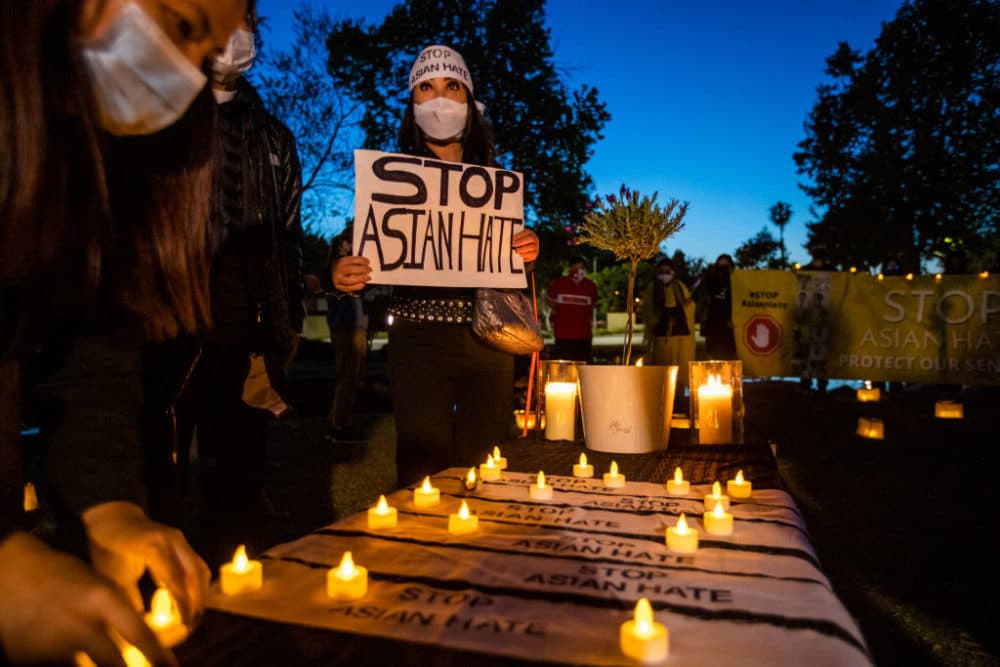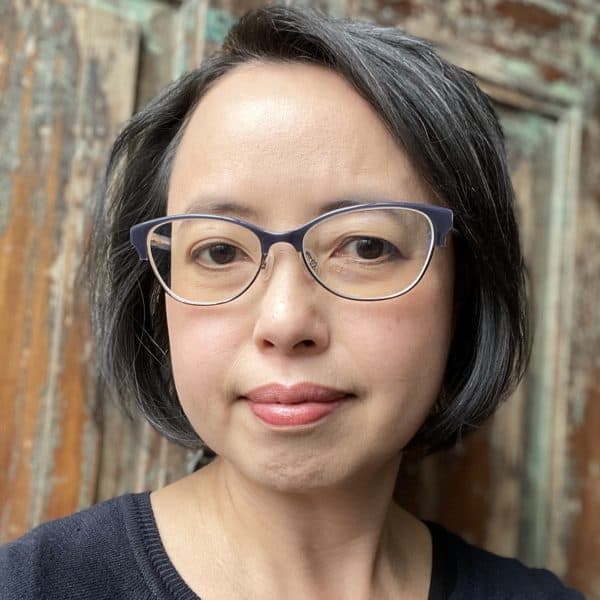Advertisement
Commentary
I Wasn’t Ready For This Kind Of Grief

I wasn't ready for this moment. More than two weeks after the shooting in Atlanta, I am still reeling and at a loss for what to do about the grief and sense of powerlessness I feel. Worst of all, I am realizing that I have neither the emotional "muscle memory" to express my frustration, sadness and fear, nor the natural instinct to make myself heard.
Nothing from my upbringing as a Vietnamese refugee raised in sunny Southern California had prepared me for this moment. More concerned about succeeding in our new country, my family had little time to look beyond our own community, let alone consider where and how we fit in the American landscape.
While the tragedy in Atlanta underscored the danger of ever-present misogynistic stereotypes of Asian American women, it also exposed a vacuum of our voices. In its aftermath, I watched as our community struggled to articulate our collective pain and proclaim an impassioned call to action. Even the oft-tweeted “#stopAsianhate” seems too passive and unworthy of our awakening. We need to proclaim who we are and why we matter; we just don’t know how.
So many Asian Americans of my generation were raised to keep our heads down, to suppress our rage, discomfort, and fears, to be invisible, to suffer in silence. All this was multiplied many times over for Asian American women and girls. And it all worked. We made ourselves so invisible that the larger society is able to forget about our stories and ignore racial and misogynistic violence against us. We are neither seen nor heard.
I have no memories of any conversations with my family about anyone's feelings. Nobody talked about them; nobody asked how anyone else felt. My uncles, who fought in the Vietnam War, never talked about their experiences. My mother, who survived hardship and deprivation, never talked about her emotions — there must have been many.
As a girl, I was told to be quiet and submissive. Emotional vulnerability was not encouraged. While my family certainly couldn't have imagined that I would need emotional skills to cope with mass tragedy, they also didn't recognize that I needed these skills to process heartache, failures and grief.
In my heart, I know that our families did the best they could, teaching values and behaviors based on their own experiences of persecution, survival and immigrant hardships. They were protecting themselves from wounds and scars as they tried to prepare us for a future they could not predict.
They drilled into us a fierce love of education, appreciation for stability, and loyalty to family. These values made up the armor they thought would protect us. I know this was their way of showing love. But they didn't teach us how to cope with failure, heartache, anger, and all the other emotions that pierce through our armor. And by avoiding attention, we remained invisible.
Advertisement
"Fitting in" was considered our key to success, and to achieve it we swallowed our own discomfort, to avoid making others uncomfortable. We never corrected anyone for mispronouncing our names, nor did we confront anyone when they made fun of our eyes or food. I can't remember how many times I smiled politely at a Kathy Lee Gifford joke or when someone complimented my English. To act otherwise would risk drawing attention and potential nonacceptance.
Even in college, I tried so hard to fit in. I didn’t understand that no amount of effort could erase the vast imbalance of privilege and lived experiences at Ivy League institutions. When I could not relate to European summer vacations, spring breaks in the Caribbean or winter ski trips, I just avoided talking about them. I did not share stories about staying on campus for Thanksgiving because I couldn't afford a plane ticket home. I never talked about my own family, knowing deep down that the omission was tinged with shame and guilt. To fit in, I thought I needed to transcend my identity.
As we’re seeing all too clearly, the danger never truly passes. Not after the Japanese internment camps were shut down. Not after two Ivy League degrees.
The toxic combination of poor emotional proficiency and the value placed on keeping our heads down has deprived my generation of Asian Americans of our collective voice, social capital and power. Don't rock the boat, don't rock the boat. A silent refrain can become ingrained like a malignant cancer, building its DNA into our physical and emotional muscle memory. Our instinct in moments of danger is to seek the comfort of invisibility, to be passive and hope the danger will pass.
As we’re seeing all too clearly, the danger never truly passes. Not after the Japanese internment camps were shut down. Not after two Ivy League degrees. Not even after the election of Kamala Harris. We have to accept that the violence today has deep roots, and "fitting in" has only provided a false sense of security — one that is now cruelly shattered.
So, whether we like it or not, whether we know how to or not, the moment calls for us to give voice to our suffering and change our collective narrative. Recognition can be a powerful thing, but it’s what we do next that is important. I wish I could promise that the path forward will be smooth and easy; it will not be.
To succeed, we will have to fight the discomfort of finally being seen and heard. For me, that starts here with this essay, shared beyond the comfort of my own friends and family. Hopefully, I will get used to hearing (and seeing) my voice more often. And maybe it will inspire my Asian American sisters, aunties and grandmas to follow suit.

